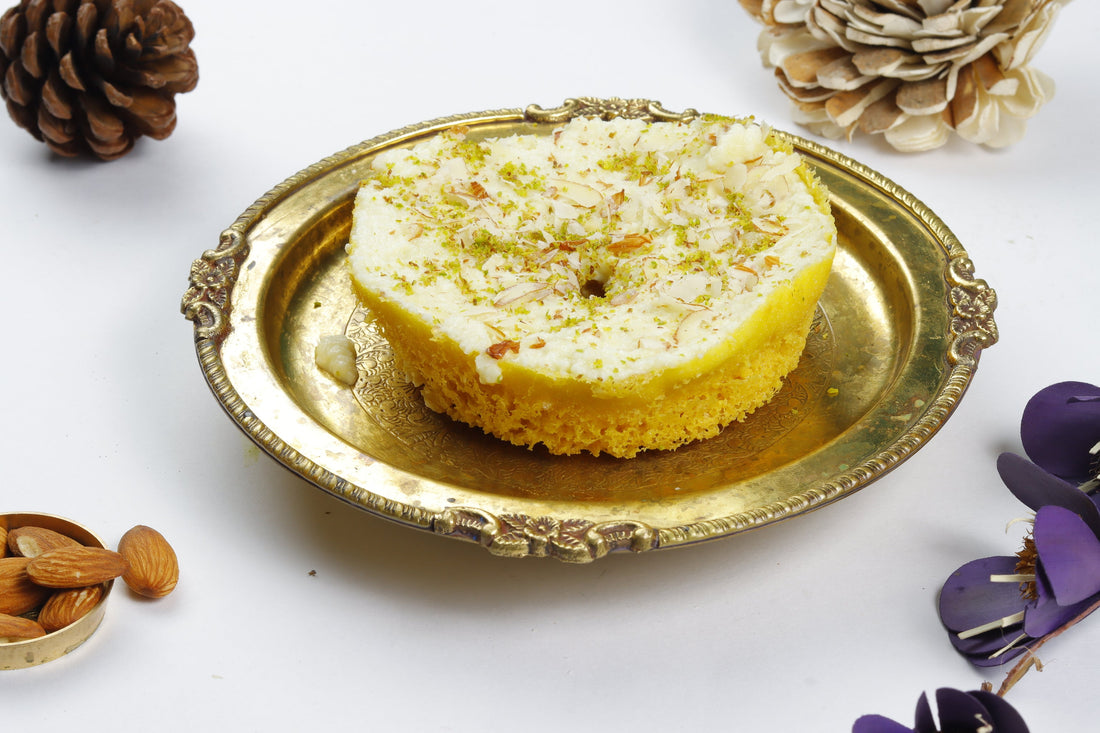
Why Ghewar is Eaten During Raksha Bandhan — A Sweet Tradition Rooted in Love
Share
Raksha Bandhan, a cherished Indian festival celebrating the bond between brothers and sisters, is incomplete without traditional sweets. Among the many festive treats, Ghewar holds a special place—especially in Rajasthan and Northern India. But why is Ghewar so deeply linked with Raksha Bandhan?
The Cultural Significance of Ghewar
Ghewar is not just a sweet—it’s a symbol of festivity, prosperity, and togetherness. Traditionally prepared during the Sawan (monsoon) season, which aligns with Raksha Bandhan, Ghewar is considered auspicious and is often sent as part of the shagun (gift) to sisters from their maternal homes.
Its golden hue, honeycomb texture, and rich topping of malai and dry fruits make it a celebration in itself. Sisters eagerly await this delicacy, often paired with bangles, mehendi, and sarees in the festive package.
Why Desi Ghee Ghewar?
The secret behind an unforgettable Ghewar lies in its ingredients. Desi Ghee, known for its purity, aroma, and health benefits, enhances the flavor and richness of this festive sweet. A Ghewar made in desi ghee is not just tastier, but also offers better digestion and a true taste of tradition.
At Nutty Ghee Sweets, we bring you Malai Ghewar and Kesar Ghewar prepared exclusively in 100% pure desi ghee, topped generously with premium dry fruits. Each bite brings the essence of home, tradition, and love—exactly what Raksha Bandhan stands for.
This Raksha Bandhan, gift your sibling a slice of tradition and purity. Choose Desi Ghee Ghewar. Choose Nutty Ghee Sweets.
🌐 www.NuttyGhee.com
Because nothing says love like sweets made in desi ghee.
